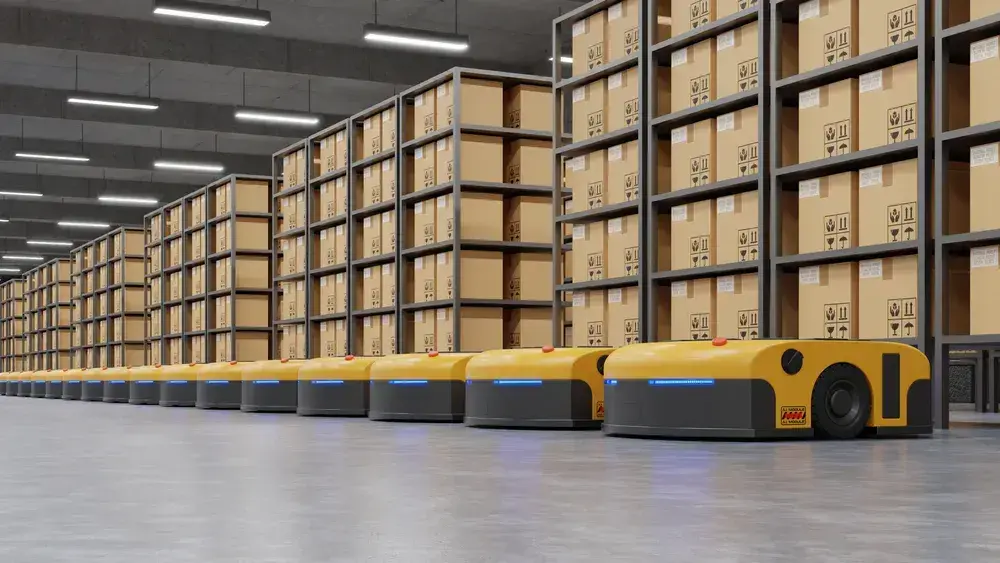Chemical manufacturers are often skeptical of making operational changes as it’s taken decades to establish industry norms. But in the face of an aging workforce and pressures to be more sustainable, chemical manufacturers must embrace technological innovation to meet their strategic goals. Growing at a Compound Annual Growth Rate (CAGR) of 6% between 2022 and 2031, spending on digital transformation in the chemical industry will reach US$7.4 billion by 2031.
Putting 6 Chemical Manufacturing Challenges to Rest with Technology
Jul 14, 2022 12:00:00 AM / by James Prestwood posted in Industrial & Manufacturing Technologies
How Android Automotive OS Is Changing Connected Vehicle Services
Jul 14, 2022 12:00:00 AM / by James Hodgson posted in Smart Mobility & Automotive
If there was only one place to learn about the future of connected vehicle services, it would be at the Consumer Electronics Show (CES). During CES 2022, Android Automotive announced new exciting connected vehicle features like Advanced Driver Assistance Systems (ADAS) activation, YouTube integration with Android Automotive Operating System (AAOS), and the availability of third-party navigation and charging apps.
Commercial sUAS (Drone) Market Trends, Stats, Forecasts, Products, Services, Industries, and Regions
Jul 13, 2022 12:00:00 AM / by Admin posted in Industrial, Collaborative & Commercial Robotics
A Small Unmanned Aerial System (sUAS), also known as a drone, was not long ago considered a rare commercial deployment. But today, the drone market encompasses a wide array of industries and use cases. Global sUAS drone ecosystems are expected to surpass the 3 million mark by 2025 and grow at a Compound Annual Growth Rate (CAGR) of 25%.
Enterprise Wireless Networks Now and in the Future
Jul 12, 2022 12:00:00 AM / by Andrew Spivey posted in Wi-Fi, Bluetooth & Wireless Connectivity
Once the go-to solution for an enterprise wireless network, Wi-Fi 5 is nearing its demise. By 2025, Wi-Fi 5 will be near obsolete, as Wi-Fi 6, Wi-Fi 6E, and Wi-Fi 7 offer superior performance in a world where enterprises introduce more and more connected devices to their work environments. To avoid getting caught off-guard, equipment vendors must learn where the greatest demands lie within the world of Information Technology (IT) and Operational Technology (OT) network solutions.
How Augmented Reality Can Be Used in Car Manufacturing
Jul 12, 2022 12:00:00 AM / by Eric Abbruzzese posted in Smart Mobility & Automotive, Extended Reality (XR) Technologies
Few would argue that the automotive industry can be complex. Everything from model design to after-sales services requires a large sum of resources and pinpoint accuracy. To ease the pain, Augmented Reality (AR) can enhance nearly every facet of car manufacturing because it allows assembly line workers to go hands-free. Besides, most carmakers already have existing platforms that can take advantage of AR.
Where the Telecom Cloud and Software Are Taking Communication Service Providers (CSPs)
Jul 7, 2022 12:00:00 AM / by Admin posted in 5G & 6G Cloud-Native Systems
As the telecom industry migrates toward cloudification, what does it mean for Communication Service Providers (CSPs)? Moreover, what does the telecom software market look like in terms of solution offerings? In this reading, learn about the drivers, challenges, and hyperscalers surrounding telecom cloud and software space.
Smart Technologies Revolutionizing the Home Healthcare Market (Forecasts and Use Cases)
Jul 5, 2022 12:00:00 AM / by Admin posted in 5G & 6G Cloud-Native Systems
The home healthcare market is changing rapidly as innovators provide numerous smart technologies that make users’ lives safer and more convenient. ABI Research’s recent Smart Home Healthcare market data report unveiled the greatest product and service opportunities. Understanding where the home healthcare market currently is and where it is headed will give solution providers the strategic intelligence needed for developing an optimal roadmap.
Merger Case Study: Apple Acquires Intel's Smartphone Modem Business
Jul 1, 2022 12:00:00 AM / by Admin
In 2019, Apple announced its decision to invest $1 billion to purchase most of Intel’s modem development unit.
Steel Industry in 2022: Most Promising Technologies to Keep an Eye on
Jun 28, 2022 12:00:00 AM / by Michael Larner posted in Industrial & Manufacturing Technologies
The steel industry dates back to the 19th century and played a central role in the Industrial Revolution, which paved the way for the modern world. Steel continues to be a dominant iron alloy as it it’s used in construction, manufacturing, mechanical engineering, and other verticals. But steel production is both environmentally harmful and dangerous to workers. To address these two conundrums, steel producers must invest in digital transformation.
A Beginner’s Handbook on Automated Guided Vehicles: Types of AGVs and How They Are Used
Jun 28, 2022 12:00:00 AM / by Admin posted in Industrial & Manufacturing Technologies, Supply Chain Management & Logistics, Industrial, Collaborative & Commercial Robotics
Today, mobile robots serve as a pillar of the digitization of manufacturing and logistics. As no surprise, Automated Guided Vehicles (AGVs) are at the forefront of modernizing manufacturing and logistics, as they save companies time and money while being highly precise with handling containers, pallets, materials, components, and other important assets. Not to mention, AGVs, like exoskeletons, significantly decrease the risk of workplace injuries.













